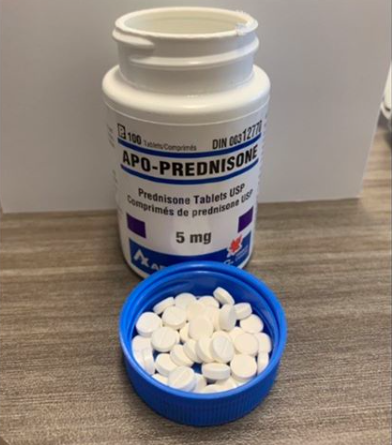Oral Steroids (Prednisone, Dexamethasone) for Rapidly Progressive Alopecia Areata: Still an Option
Prednisone and Dexamethasone are Still Options for Alopecia Areata
Research on alopecia areata is progressing rapidly and treatment options are changing and expanding (ie JAK inhibitors). Despite several new options, some treatments such as oral steroids are still very much a part of the management of alopecia areata as well. Oral steroids such as prednisone has been a part of medicine since 1955.
See previous articles
Prednisone remains an option for select patients with rapidly progressive alopecia areata
Oral steroids however come with the potential for side effects and that’s why they are cautiously used - and only in select patients. However, few treatments work as fast and are as reliable as prednisone and dexamethasone. To limit side effects, we don’t like patients on them very long and if the chances are good that the patient is going to lose hair again when we stop eventually stop the steroids, we might not even start them in the first place.
Prednisone and dexamethaonse, in my clinic, are used in one main situation. It is used if the answer to one particular question is “yes.” This question is “If we tell this patient’s immune system to settle down by using oral corticosteroids, is it reasonably likely that the immune system is going to stay quiet when we start to reduce and then ultimately stop the corticosteroids?”
The main challenge is that were are not so accurate in the present day at predicting the answer to this question. The answer is often “yes” for several groups of patients and these are groups of patients that I might sometimes consider using oral steroids including (1) patients who previously had an episode of patchy alopecia areata that grew back completely with or without treatment and are now experiencing a more severe degree of hair loss and (2) patients who are experiencing their very first episode of alopecia areata and have lost more than 30 % of their hair density in the past 3 weeks and (3) patients who have significantly more bald spots today than they did yesterday.
Other groups may also be candidates for oral steroids too but this is approached on a case by case basis.
Oral steroids have the potential to cause side effects even in the short term and this must be reviewed with the patient when deciding whether to start or not. Short term side effects include weight gain, mood changes, poor sleep, stretch marks, and less commonly issues such as frequent urination, elevated blood pressure and blood sugars. Avascular necrosis of the femoral head must be reviewed with patients as a rare side effect.
This article was written by Dr. Jeff Donovan, a Canadian and US board certified dermatologist specializing exclusively in hair loss.

